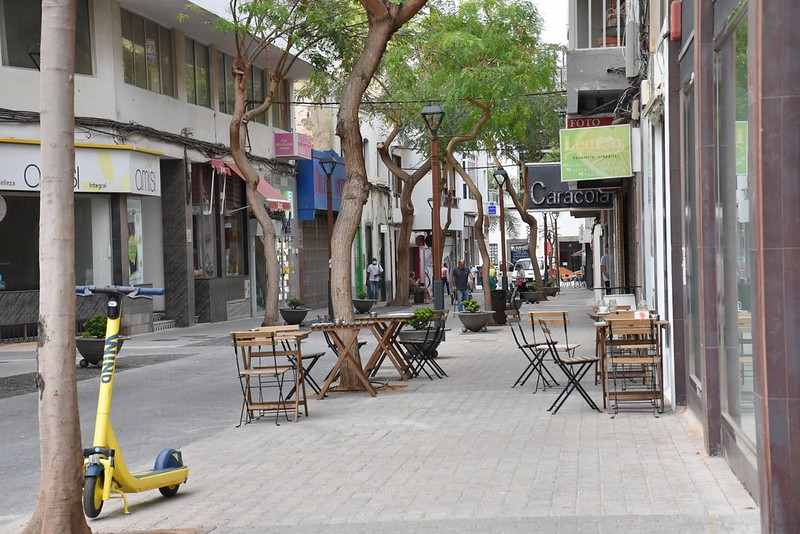The hospitality sector is experiencing what is already the worst summer in its recent history due to the coronavirus pandemic, and the management predicts a “black” autumn with more closures. A “scabechina” that will be influenced by the drop in temperatures, the economic crisis, the losses that many locals drag and teleworking.
This was warned, in statements to the EFE agency, by the president of Hospitality of Spain, José Luis Yzuel, who calculates that the volume of income from bars and restaurants on these dates is around 60% of the turnover of a year ago. “And that’s in August, when it is normally a month with peak sales. Imagine what could happen when you return ”, he lamented, while wanting to emphasize that there are substantial differences depending on the territories and the business model, but the Canarian case would be one of the most affected due to its high dependence on the activity tour.
In the same way, the president of the employer’s association pointed out that “the most serious thing” are the new outbreaks in areas such as Lleida or Aragón, where, in his opinion, “a total disaster” for the hotel industry would have taken place, especially, due to fear of the population to the disease, as well as due to the absence of foreign visitors.
Along the same lines, the president places both nightlife -pubs and discos- and haute cuisine restaurants, the latter highly dependent on tourism. Among the biggest victims, it also places restaurants located in office areas, which are directly impacted by teleworking.
During this summer, the most affected are establishments located in the archipelagos (the Canary Islands and the Balearic Islands) or in municipalities such as Benidorm, where visitors from other countries play a key role in the business. The data would also be very poor in the center of some tourist cities, such as the capital. “Madrid right now is a lot,” he pointed out.
“In life we have had such a bad summer, not even with the 2008 crisis. Then it was bad and there were many closures, but nothing to do with the severity of this. Remember that we received more than 80 million tourists and now most will not come. You even see closed premises on the beachfront in the middle of August ”, insisted the employer’s leader.
On the contrary, the statistics would be experiencing an improvement in those towns and cities where the second homes of many Spaniards are located, since national tourism does work.
The sector estimates that about 40,000 of the 270,000 bars and restaurants that Spain had have disappeared, and the figure at the end of 2020 may range between 65,000 and 85,000 places depending on how the Covid-19 pandemic evolves.
Facing autumn, the president of Hospitality of Spain draws a gloomy scenario: “There are already many people who have opened for losses, and from September this is not going to be better. Many are going to close, the devastation will be important ”.
Yzuel also stressed that there is an increasing percentage of bars and restaurants that reopened during the de-escalation and that the blind has been lowered again, because now they have to face more labor costs after having recovered ERTE personnel, to which it is added to continue paying electricity, water, taxes or rent. “In our sector, either you do not open or you do it losing money, you can last a short time,” he warned.
In his opinion, the main “weakness” of the Spanish hospitality industry is that it is made up of tens of thousands of very small micro-businesses, and it is paying dearly for it. “When a large company calls, even President Sánchez is put on the phone. Not us, ”explained Yzuel, who, however, acknowledges that they maintain a fluid relationship with the minister of the branch, Reyes Maroto.
Even so, he shows moderate optimism in the long term: “A better sector will come from here, more rethought, reinforced. And the one who endures will have less competition ”.





